Nirit Hazan grew up in Nahal Oz, an Israeli kibbutz about 700 yards from the Gaza Strip border, and when she first got word last Friday night that Hamas militants had infiltrated the Gaza border, she felt sick to her stomach and thought that her worst childhood nightmare was coming to life.
Hazan now works at Stanford University and lives in Cupertino but she thought of her 86-year-old mother, Tami Halevy, who still lives at Nahal Oz. In what she called "the most surreal and horrific day" of her life, Hazan urged her mother to go into her mamad, a secured room akin to a bomb shelter. When Halevy got there, she remained in touch with Hazan and her four siblings over WhatsApp, reporting about the gunshots close to her home and asking for news. She also learned that her mother is unable to lock the mamad.
"The thought of her sheltering in place all by herself in an unlocked mamad while terrorists are roaming her beautiful kibbutz, going from house to house, looking to murder innocent civilians and taking others, including children and women as prisoners of war, was something beyond our darkest and wildest imagination," Hazan said at an Oct. 10 event at the Oshman JCC in Palo Alto.
Over the coming hours, the nightmare unfolded along the border as other kibbutzim were targeted with rockets or excursions. Finally, about 17 hours after the attack began, a group of Israeli commandos arrived to evacuate Halevy, allowing her to get to a bus that took her to another daughter's house in Jerusalem, Hazan said.
"The trauma that she endured is unimaginable and yet we feel blessed that she is alive," Hazan said, before listing the names of various friends and neighbors and who lost their lives or were abducted.
Hazan was one of hundreds of people in the JCC who were personally touched by the broiling conflict, which began on Oct. 7 when Hamas crossed the Gaza Strip border and targeted Israeli villages in a sweeping and shocking strike that resulted in more than 1,000 people getting killed and dozens kidnapped, according to the Associated Press. The suffering has since grown more widespread as the Israeli military reacted by pummeling the Gaza Strip with airstrikes that have killed about 800 people and wounded thousands more, according to the AP.
"No one is untouched by this," said Zack Bodner, president and CEO of the Oshman Family JCC. "No one in our community is untouched by this tragedy."
When he heard about the attack on Saturday morning, Bodner felt terrified, then enraged, then dumbfounded and then heartbroken, he said. As he saw videos of the attack play over and over again on the news, his emotions ran like a rollercoaster. He reached out to his cousin in Israel and held his breath waiting for response, he said.
"When they finally responded, I exhaled and immediately afterward I felt this sense of guilt because I knew that others can't exhale," Bodner told an estimated crowd of about 2,000 people who came to the JCC.
He listed the names of people he knows: the 16-year-old student in the local community whose Israeli soccer coach was killed in the attack; the man whose two daughters were called up to serve in the attack's aftermath; the Israeli tour guide whose building was hit and destroyed by a missile early in the attack.
"He feels lucky to be a war refugee because he knows a couple that was killed and others who were taken," he said.
An estimated 2,000 people, including religious leaders, politicians and residents from throughout the Peninsula, came to the solidarity event in the JCC's Freidenrich Community Park. They waved flags, sang songs, held memorial candles and prayed for Israel and for the victims of the Oct. 7 attack.
Though they were thousands of miles away from the conflict, for many the event hit close to home. Hundreds of hands went up when attendees were asked if they have friends of family members who were called up by the Israeli army.
Assembly member Marc Berman, who took trips to Israel with a group of Sacramento colleagues in 2018 and 2019, recalled the meetings he held with Israeli and Palestinian residents in places like Nahal Oz and the West Bank. Berman, D-Menlo Park, said his mother's cousin currently lives in Israel. Three of her four sons were called up to serve in the military along with 300,000 other reservists after the Saturday attack, he said. On Sunday, the cousin attended a funeral for a friend's son, who was killed while rescuing families on the Gaza border. During the funeral, sirens rang out, indicating another rocket attack, and guests were forced to lie on the ground and wait, their bodies overlapping and their hands covering their heads.
Berman said seeing the atrocities that have been occurring in Israel since Oct. 7 both made him sad and filled him with rage. But even amidst the chaos, his cousin said the entire country is volunteering and looking for ways to help.
"As she put it, 'The solidarity is palpable – a balm after all the contentious political rifts,'" Berman said, alluding to recent tensions between Israeli political factions over a contentious plan by Prime Minister Benjamin Netanyahu to overhaul the nation's judicial system.
Berman said he has taken solace in the high number of colleagues, both liberal Democrats and conservative Republicans, who have reached out and made statements in support of Israel. Berman said his conversations in Israel residents during the two trips have taught him about the complicated political dynamics in the region.
"But what is not complicated and what all of these colleagues have expressed to me personally is that they stand in strong solidarity with Israel and that they know the responsibility for these atrocities lies solely with Hamas," Berman said.
There have been times in the past when others have tried to destroy the Jewish community, he said.
"We have gotten stronger and we have thrived," Berman said. "This time will be no different."
Like Berman, State Sen. Josh Becker said he had spent Saturday morning trying to come to terms with the "horror and brutality" of the Hamas attack. Becker, who has cousins, nieces and nephews in Israel, currently serves as vice chair of the 14-member California Legislative Jewish Caucus. He said he was heartened by the support he has received from his colleagues in the Latino, African-American, the Asian-American and LGBTQ caucuses since the Oct. 7 attack on Israel.
"They all stand with us right now in this fight," Becker said.
The struggle in Israel will be long and difficult, Becker said. He encouraged attendees to do their part by using their voices, networks and social media accounts to fight disinformation and hate and to support Israel.
"It's OK to grieve. It's OK to feel pain. It's OK to shed tears. I've done all of the above in the last few days," Becker said. "But what is not OK is to stay in that pain. We must persist, we must lean on our collective strength, the strength of our community, to be here for our local Israeli community and to take action."
The Oct. 7 attacks have drawn a mix of responses in local communities, with some residents using the occasion of Hamas strikes on Israeli civilians as an opportunity to voice their support for Palestine and their opposition to Israeli occupation of the West Bank, Gaza Strip and Golan Heights. On Oct. 8, hundreds marched in downtown San Francisco and chanted, "Palestine will be free!," according to NBC News footage. At one point, the demonstrators took their protest to the Israeli Consul General's office, according to the news report.
In Palo Alto, however, the sentiment on Oct. 10 was entirely pro-Israel. Marco Sermoneto, consul general of Israel to the Pacific Northwest, drew cheers when he talked about the need to support Israel and defeat Hamas, a militant group that has been in power in Gaza since 2006.
"Hamas will soon understand that by attacking us they have made a mistake of historic proportions," Sermoneto said. "We may have paid a heavy price but the price they will pay will be unbearable and it will be remembered by all of Israel's enemies for a long time."
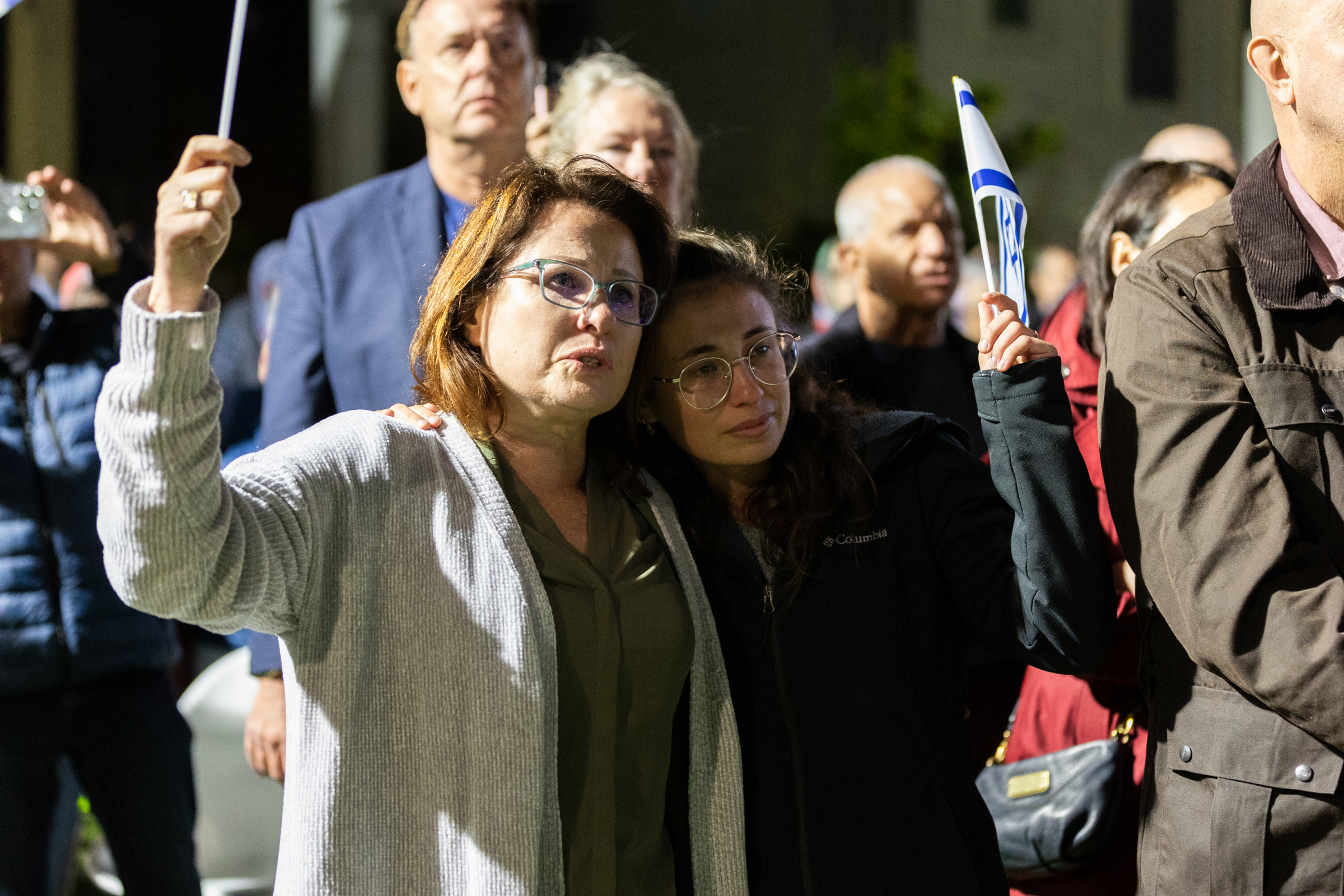
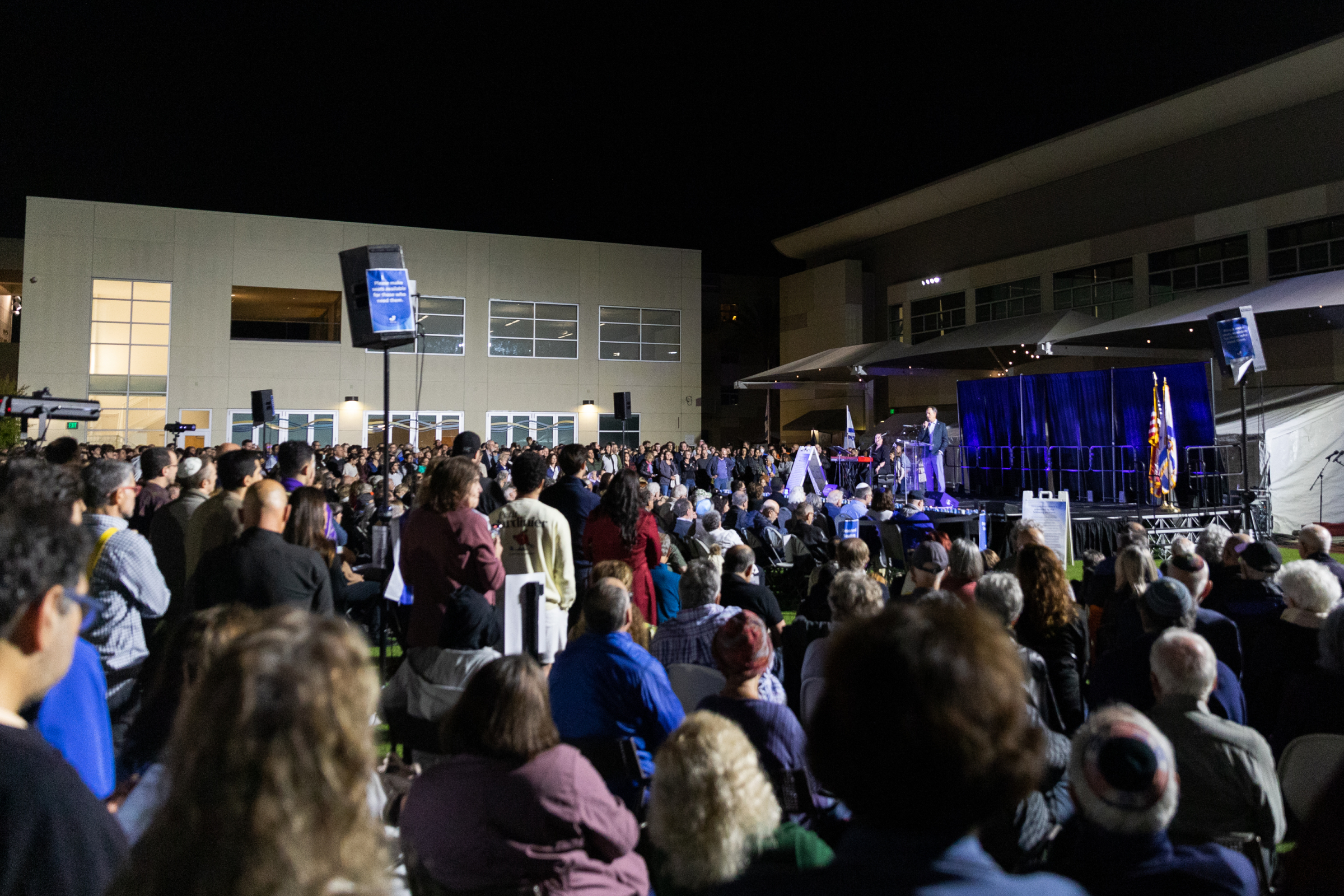

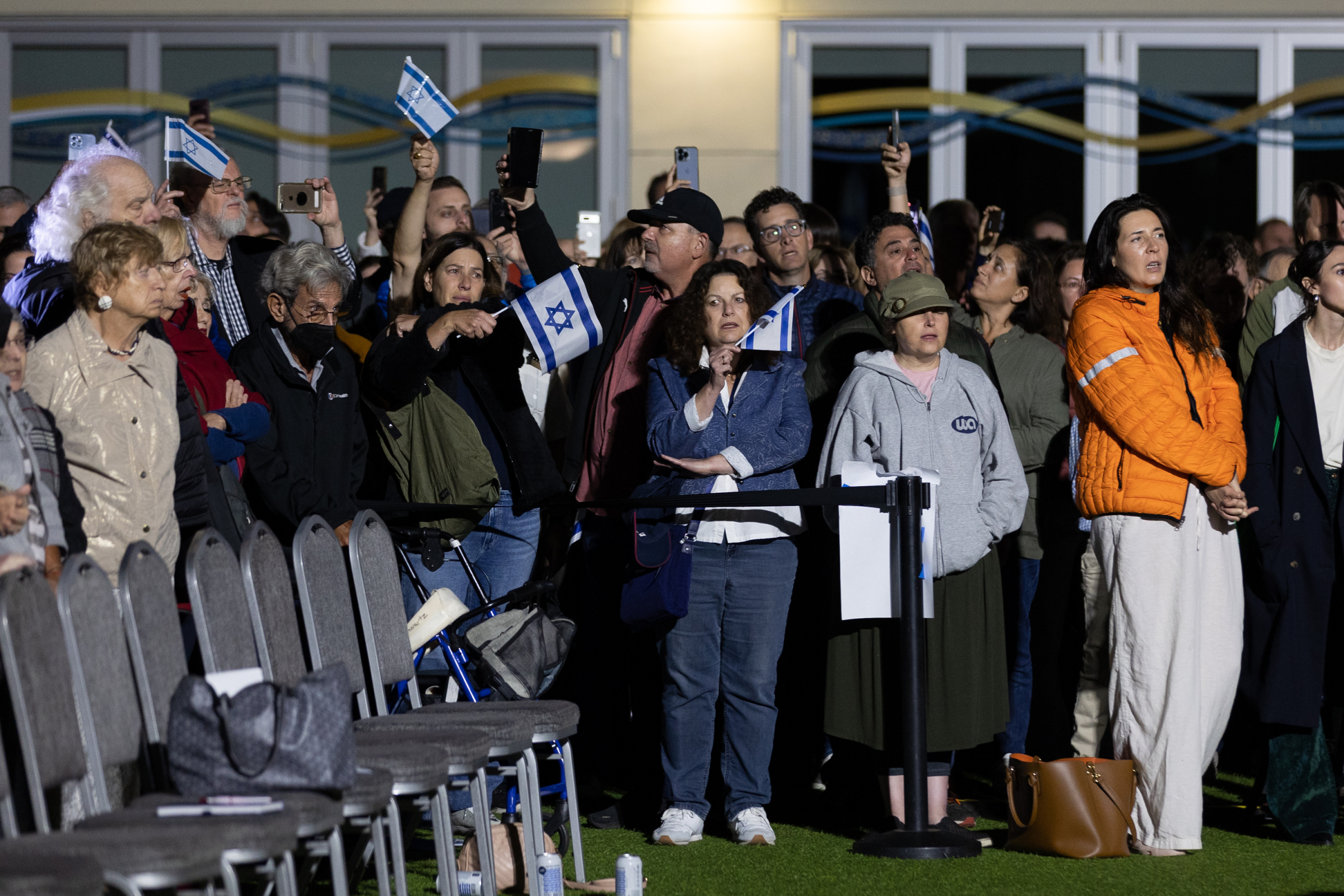
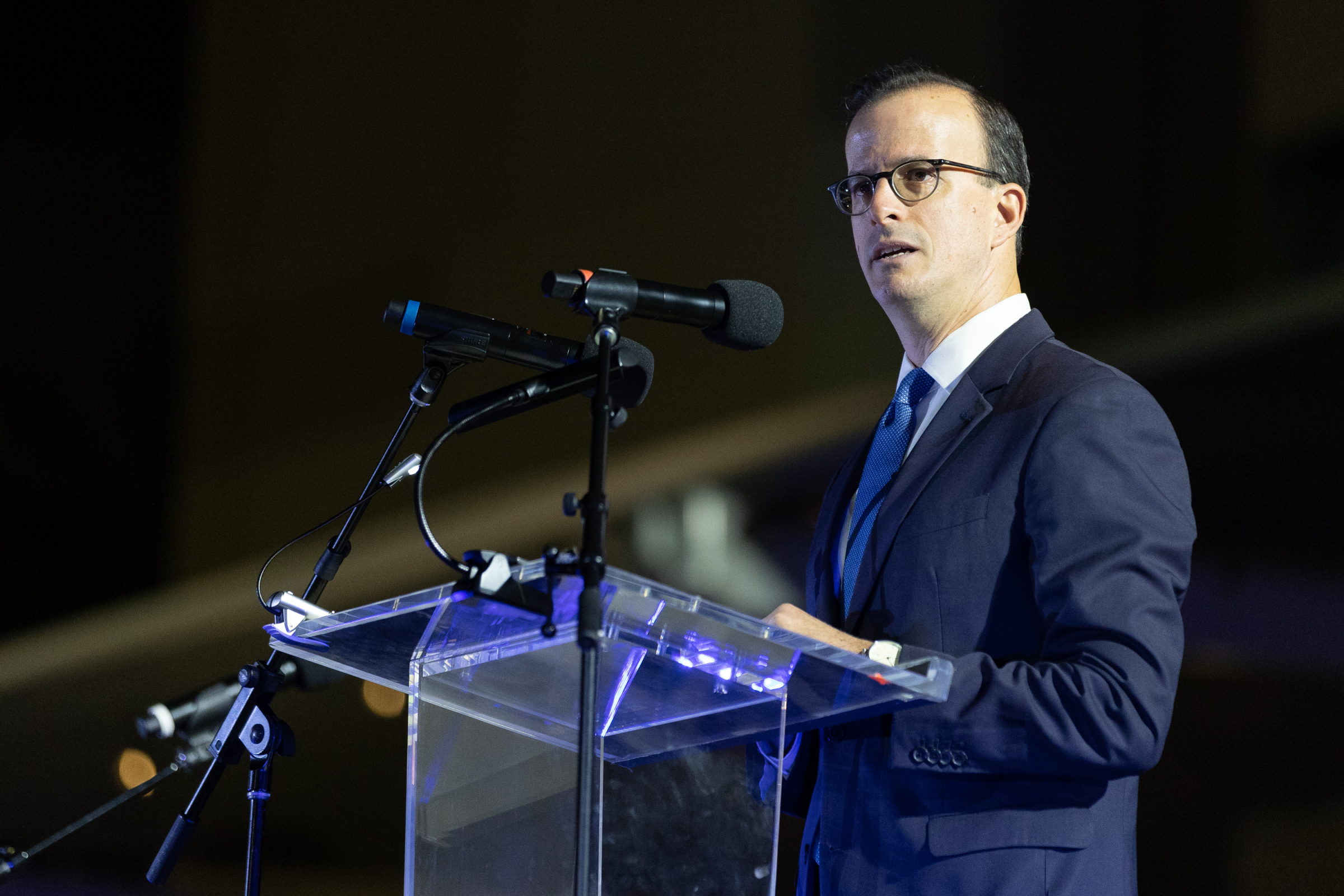
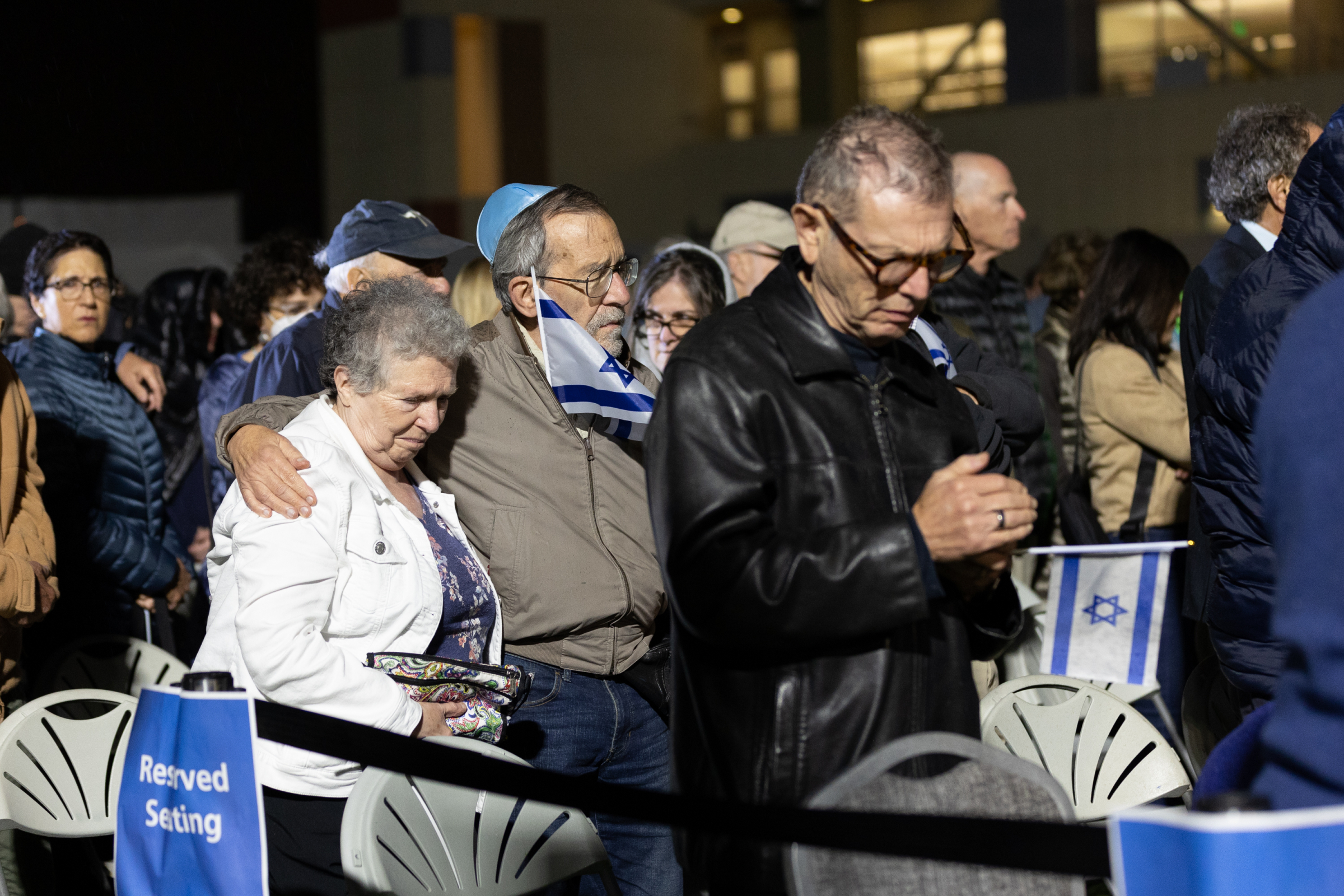
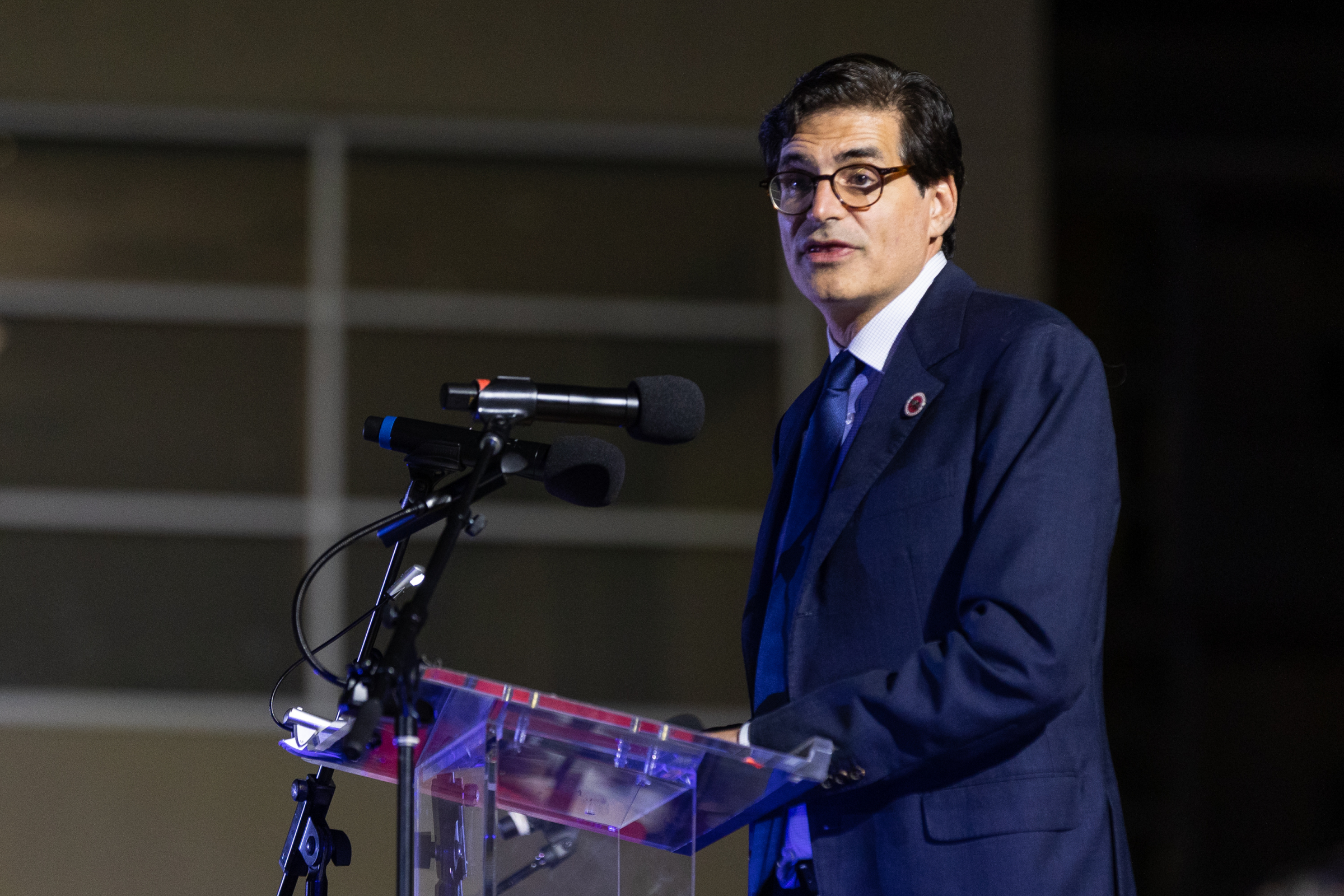
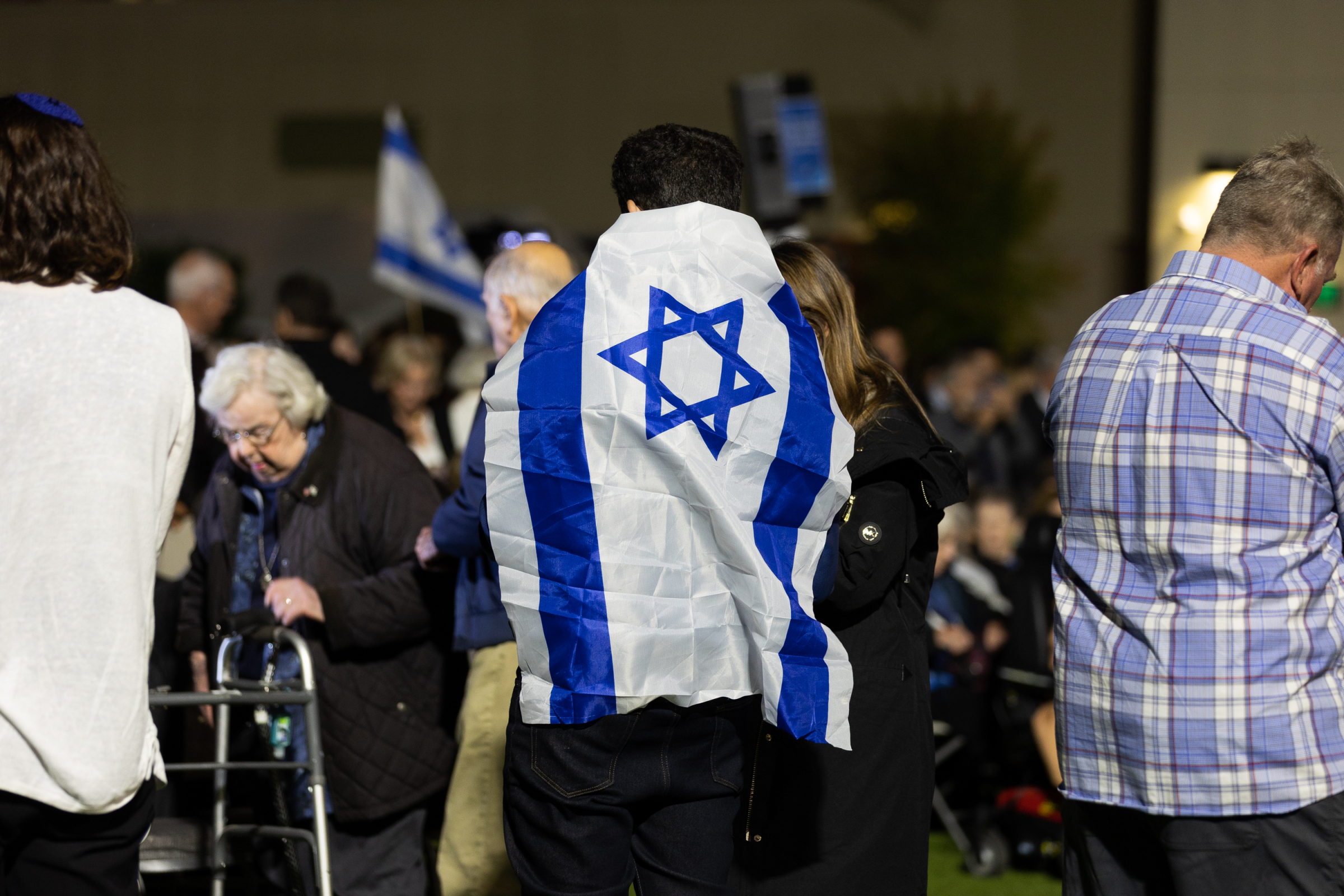

Comments